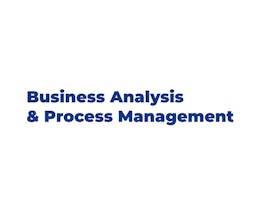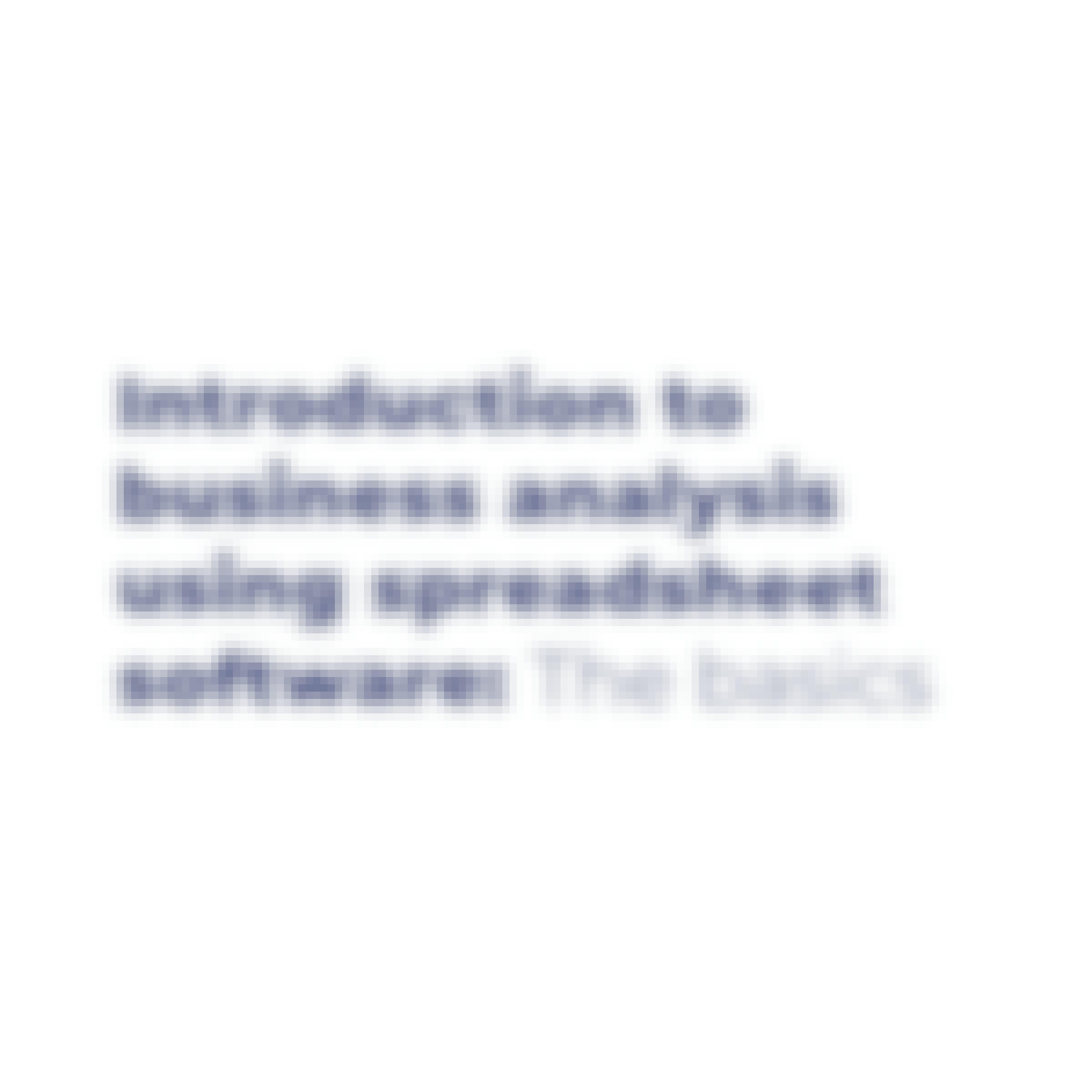Filter by
The language used throughout the course, in both instruction and assessments.
Choose the Business Analysis Course That Aligns Best With Your Educational Goals

Coursera Project Network
Skills you'll gain: Business Analysis, Business Process Management

Skills you'll gain: Adaptability, Business Analysis, Collaboration, Communication, Planning, Strategy

Starweaver
Skills you'll gain: Business Analysis

University of Pennsylvania
Skills you'll gain: Data Analysis, Business Analysis, Probability & Statistics, Statistical Analysis, Leadership and Management, Basic Descriptive Statistics, Exploratory Data Analysis, Financial Analysis, Forecasting, Data Model, Mathematics, Performance Management, Strategy, Accounting, Customer Analysis, Human Resources, Human Resources Operations, Market Analysis, Market Research, Marketing, Mathematical Theory & Analysis, Operations Management, Operations Research, Organizational Development, People Analysis, People Management, Spreadsheet Software, Talent Management, Financial Accounting, People Development, Collaboration, Finance, Regulations and Compliance

Rice University
Skills you'll gain: Probability & Statistics, Statistical Analysis, Business Analysis, General Statistics, Data Analysis, Spreadsheet Software, Basic Descriptive Statistics, Microsoft Excel, Statistical Tests, Probability Distribution, Business Intelligence, Data Analysis Software, Regression, Data Management, Critical Thinking, Data Visualization, Plot (Graphics), Statistical Visualization, Decision Making

Tableau Learning Partner
Skills you'll gain: Business Analysis

Coursera Project Network
Skills you'll gain: Business Analysis, Data Analysis, Microsoft Excel

Microsoft
Skills you'll gain: Business Analysis, Data Analysis, Data Visualization, Leadership and Management, Microsoft Excel, Power BI, Risk Management

University of Illinois at Urbana-Champaign
Skills you'll gain: Market Analysis, Finance, Business Analysis, Financial Analysis, Data Analysis, Behavioral Economics, Decision Making, Probability & Statistics, Accounting, Banking, Econometrics, General Statistics, Statistical Analysis, Leadership and Management, Basic Descriptive Statistics, Exploratory Data Analysis, Financial Accounting, Financial Management, Strategy and Operations, Investment Management, Market Research, Probability Distribution, Regulations and Compliance, Marketing, Risk Management, Securities Trading, Statistical Tests, Correlation And Dependence, Mathematics, Securities Sales, Strategy, Taxes, Game Theory, Regression, Microsoft Excel

Microsoft
Skills you'll gain: Leadership and Management

Skills you'll gain: Business Analysis, Strategy

University of Colorado Boulder
Skills you'll gain: Data Analysis, Business Analysis, Exploratory Data Analysis, Statistical Analysis, Data Management, Probability & Statistics, Data Model, Decision Making, Data Analysis Software, General Statistics, Statistical Visualization, Data Visualization, Basic Descriptive Statistics, Mathematics, Regression, Spreadsheet Software, Business Intelligence, Mathematical Theory & Analysis, Business Communication, Communication, Data Structures, Databases, Plot (Graphics), Database Application, Extract, Transform, Load, SQL, Machine Learning
Subjects related to Business Analysis
In summary, here are 10 of our most popular business analysis courses
- Business Analysis & Process Management: Coursera Project Network
- Certified Business Analysis Professional™ (CBAP®): Starweaver
- Fundamentals of Business Analysis : Starweaver
- Business Analytics: University of Pennsylvania
- Business Statistics and Analysis: Rice University
- Business Analysis Process: Tableau Learning Partner
- Introduction to Business Analysis Using Spreadsheets: Basics: Coursera Project Network
- Microsoft Business Analyst: Microsoft
- Managerial Economics and Business Analysis: University of Illinois at Urbana-Champaign
- Business Analysis Fundamentals: Microsoft










